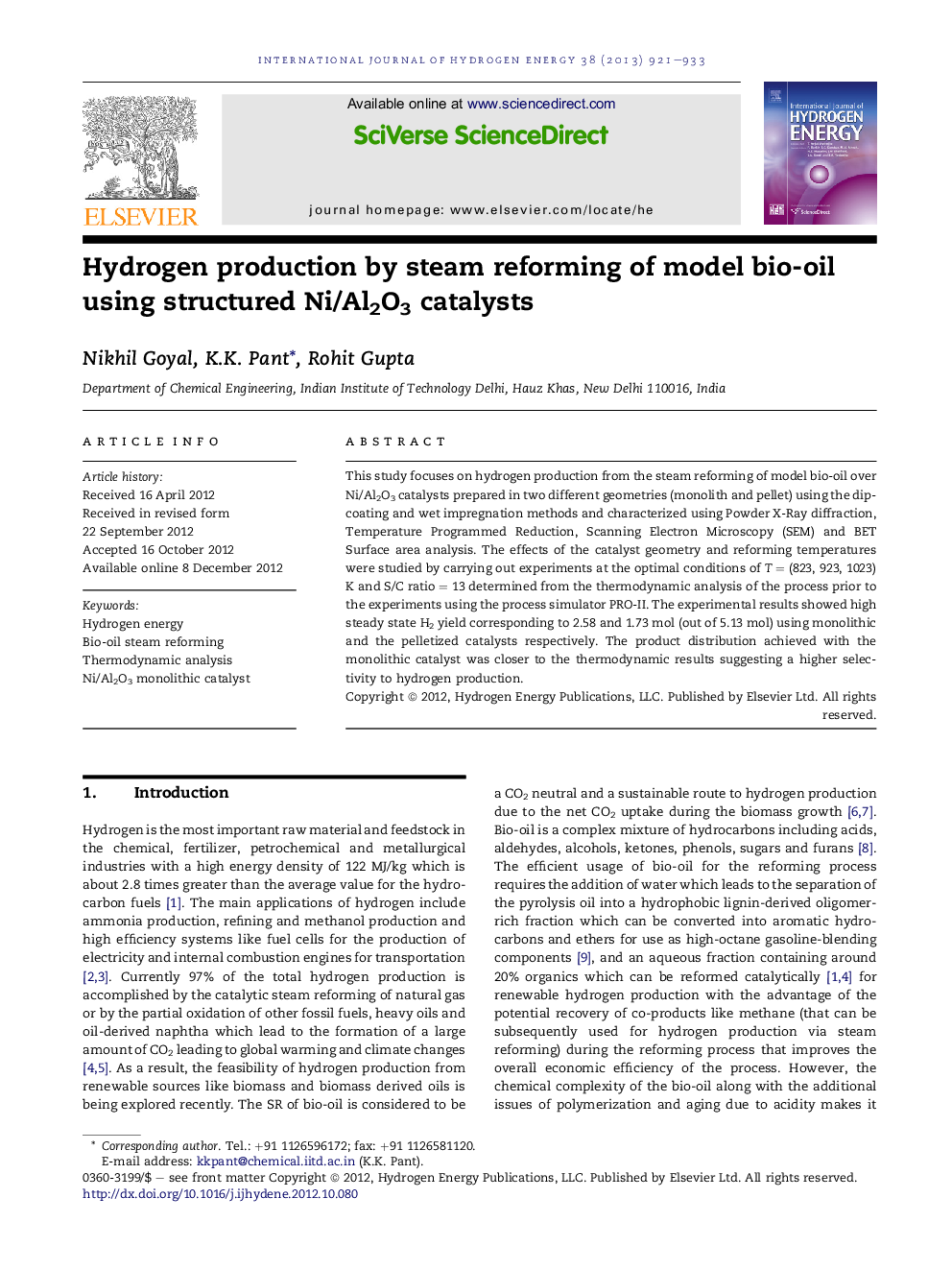| Article ID | Journal | Published Year | Pages | File Type |
|---|---|---|---|---|
| 1282058 | International Journal of Hydrogen Energy | 2013 | 13 Pages |
This study focuses on hydrogen production from the steam reforming of model bio-oil over Ni/Al2O3 catalysts prepared in two different geometries (monolith and pellet) using the dip-coating and wet impregnation methods and characterized using Powder X-Ray diffraction, Temperature Programmed Reduction, Scanning Electron Microscopy (SEM) and BET Surface area analysis. The effects of the catalyst geometry and reforming temperatures were studied by carrying out experiments at the optimal conditions of T = (823, 923, 1023) K and S/C ratio = 13 determined from the thermodynamic analysis of the process prior to the experiments using the process simulator PRO-II. The experimental results showed high steady state H2 yield corresponding to 2.58 and 1.73 mol (out of 5.13 mol) using monolithic and the pelletized catalysts respectively. The product distribution achieved with the monolithic catalyst was closer to the thermodynamic results suggesting a higher selectivity to hydrogen production.
► Steam reforming of model bio-oil over structured Ni/Al2O3 catalysts. ► Thermodynamic analysis was carried out to identify the optimal reforming conditions. ► High H2 yield corresponding to 2.58 mol was observed over 12% Ni–Al monolithic catalyst.
